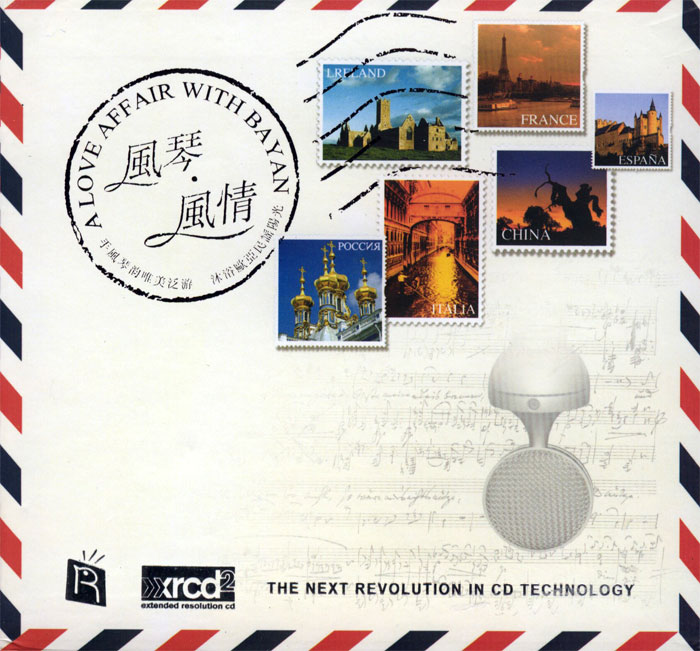Logowanie
Dlaczego wszystkjie inne nie brzmią tak jak te?
SpeakersCorner - OSTATNIE!!!!
RAVEL, DEBUSSY, Paul Paray, Detroit Symphony Orchestra
Prelude a l'Apres-midi d'un faune / Petite Suite / Valses nobles et sentimentales / Le Tombeau de Couperin
Samozapłon gwarantowany - Himalaje sztuki audiofilskiej
PROKOFIEV, Stanislaw Skrowaczewski, Minneapolis Symphony Orchestra
Romeo and Juliet
Stanisław Skrowaczewski,
✟ 22-02-2017
BARTOK, Antal Dorati, Philharmonia Hungarica
Dance Suite / Two Portraits / Two Excerpts From 'Mikrokosmos'
Samozapłon gwarantowany - Himalaje sztuki audiofilskiej
ENESCU, LISZT, Antal Dorati, The London Symphony Orchestra
Two Roumanian Rhapsodies / Hungarian Rhapsody Nos. 2 & 3
Samozapłon gwarantowany - Himalaje sztuki audiofilskiej
Winylowy niezbędnik
ClearAudio
Cartridge Alignment Gauge - uniwersalny przyrząd do ustawiania geometrii wkładki i ramienia
Jedyny na rynku, tak wszechstronny i właściwy do każdego typu gramofonu!
ClearAudio
Harmo-nicer - nie tylko mata gramofonowa
Najlepsze rozwiązania leżą tuż obok
IDEALNA MATA ANTYPOŚLIZGOWA I ANTYWIBRACYJNA.
Wzorcowe
Carmen Gomes
Celebrating the art and spirit of music - vol. 5 - Reference Songs
- CHCECIE TO WIERZCIE, CHCECIE - NIE WIERZCIE, ALE TO NIE JEST ZŁUDZENIE!!!
Petra Rosa, Eddie C.
Celebrating the art and spirit of music - vol. 3 - Pure
warm sophisticated voice...
SAMPLER - STS DIGITAL, Gregor Hamilton
Celebrating the art and spirit of music - vol. 2 - Love songs from Gregor Hamilton
...jak opanować serca bicie?...
SAMPLER - STS DIGITAL
Celebrating the art and spirit of music - vol. 1 - Leonardo Amuedo
Największy romans sopranu z głębokim basem... wiosennym
Lils Mackintosh
Celebrating the art and spirit of music - vol. 4 - A Tribute to Billie Holiday
Uczennica godna swej Mistrzyni
BEETHOVEN, Solomon, Philharmonia Orchestra, Herbert Menges
Piano Concerto No.5 in E flat, Op.73
- Ludwig van Beethoven (1770-1827):
- Concierto para piano No. 5 en Mi bemol Mayor, Op. 73 Emperador
- Wolfgang Amadeus Mozart (1756-1791)
- Sonata para piano No. 11 en La Mayor, K. 331
- Sonata para piano No.17 en Re Mayor, K. 576
- Solomon - piano
- Philharmonia Orchestra - orchestra
- Herbert Menges - conductor
- BEETHOVEN
Salomon Cutner, brytyjski pianista, który już w wieku dziesięciu lat miał za sobą pierwsze publiczne występy. Jako nastolatek z powodzeniem wykonywał kompozycje Beethovena, oraz Czajkowskiego. Koncertował w Wielkiej Brytanii, USA i Australli, gdzie zasłynął z legendarnych interpretacji Beethovena. Jego gra charakteryzuje się niezwykłą wirtuozerią, liryzmem oraz głęboką pasją. The purity and clarity of Solomon's piano playing are frequently described as "classical." But the power, drama, and emotional warmth of his playing might as easily be described as "romantic." This extraordinary "Emperor" Concerto, which was recorded for EMI in the early 1950s, when Solomon was at his peak, certainly has less in common with the interpretations of such classicists as Rudolf Serkin and Wilhelm Backhaus than with those of romanticists like Benno Moiseiwitsch and Arthur Rubinstein. There is the same physical beauty of the playing--gorgeous tone from top to bottom at all dynamic levels--and a kind of technique that makes playing the piano seem as natural as breathing. Solomon's tone is so lovely that one sometimes forgets--even in so fine an accompaniment as the pianist receives from Herbert Menges and the Philharmonia--that other musicians are present. There are very few pianists on record who have managed to play the solo instrument's final notes in the "Emperor" with such unpercussive brilliance and clarity. But with any genuinely great pianist, labels such as "classicist" and "romanticist" don't matter. Solomon's "Emperor"--all the more for its seeming spontaneity and naturalness--is distinguished by intelligence. When the ear is kept in continual expectation during so frequently performed and recorded a piece as the "Emperor," something special is happening. Solomon's playing in Mozart's Sonatas in A Major (K. 331) and D Major (K. 576) is just as special, filling out a flawless disc. (Stephen Wigler)

























